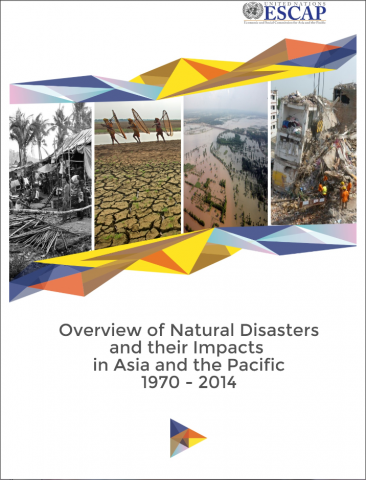Overview of Natural Disasters and their Impacts in Asia and the Pacific, 1970 – 2014


Asia and the Pacific is the most disaster-prone region in the world. Geologically, the region is characterized by active tectonic plate movements in the Pacific and Indian Oceans, which have been the source of major earthquakes and tsunamis. In the past decade alone, a person living in Asia-Pacific was twice as likely to be affected by a natural disaster as a person living in Africa, almost six times as likely as someone from Latin America and the Caribbean, and 30 times more likely to suffer from a disaster than someone living in North America or Europe.
This paper provides a review of natural disasters and their impacts in Asia and the Pacific by disaster type, sub-region and level of development. The first section looks at the occurrence of natural disaster events. This is followed by an analysis of fatalities and economic loss in sections two and three respectively. The short-term consequences of natural disasters on the economy are also mentioned. The final section briefly discusses aspects regarding exposure and vulnerability of countries in Asia and the Pacific.
ESCAP, March 2015
Overview of Natural Disasters and their Impacts in Asia and the Pacific, 1970 – 2014
http://www.unescap.org/sites/default/files/Technical%20paper-Overview%20of%20natural%20hazards%20and%20their%20impacts_final_1.pdf
